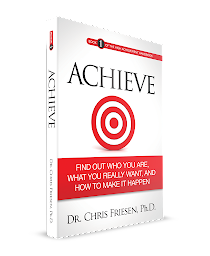Detroit Free Press: Podcast or No Podcast? That is a Question
As you may have heard by now, we started a podcast at Marathon HQ (if you haven’t, you should totally check it out here)! Going behind the scenes, we’re covering different aspects of the race from the Ladies of COBO to how the medical tent runs so smoothly over a five-part series.
Our podcast host, Kevin Heard, has told race staff that each episode is designed to be the perfect length to run a 5k. This got us thinking, ‘is there a perfect podcast length? Should we be listening to podcasts when we run? Do our runners listen to podcasts when they run?’ We needed to know.
We started by asking our followers in an Instagram poll which they prefer, and to our surprise, 20% of people said that they listen to podcasts when they run! Once we started doing some research, we realized there was a lot of information out there about the pros and cons of listening to podcasts or audiobooks or music, and some experts said to ditch anything you listen to altogether for safety’s sake.
To help us sift through all the research, we reached out to Dr. Chris Friesen, an author and clinical psychologist specializing in sport and performance psychology. Friesen says that he’s basically a Sports Neuro-psychologist- but this title doesn’t exist yet! He focuses on brain training and brain-mapping, in addition to studying the brain to create training plans and set goals in sports.
Detroit Free Press/ TCF Bank: “I read in a Washington Post article you were featured in a few years ago that when you run, you open your mind and you’re able to take in different information. Can you elaborate more about what you meant when you said that in 2015?”
DR. CHRIS FRIESEN: “Essentially when you do repetitive tasks that are easy and things we’ve done for a long time, such as running, it is not something that requires much conscious thought so our minds can expand. When your body is doing rhythmic activities, people tend to describe having very profound or positive experiences because our brain works in terms of rhythms.
We can listen to things other than music because we don’t need an external beat to hold a rhythm due to running and walking being so automatic. Music, when it comes to running, can help motivate you, it can help you to release adrenaline. Music is good if you’re running out of energy because it can pump yourself up.”
FREEP: “So what you’re saying is you don’t need to worry about not keeping a pace if you don’t have any music?”
DR. FRIESEN: “Not really, as I mentioned before, your rhythm is an internal thing, you’ll be able to keep a pace, but when you listen to podcasts that are really slow, it can slow you down. Training yourself to listen on 2x speed can help you avoid this, but it can take some practice.”
FREEP: “I have heard that it’s best to listen to thrillers or scary content when you run because it motivates you. Do you agree with that?”
DR. FRIESEN: “Listening to thrillers and exciting things, similar to an exciting song, can help you forget that you’re running and give you a boost of adrenaline. It’s about finding something that you’re absorbed in, but it’s also about making sure you aren’t too absorbed as well.”
FREEP: “I think I know what you are getting at here, are you about to talk about safety?”
DR. FRIESEN: “Of course! You have to pay attention if you’re running through New York City, but that doesn’t mean you can’t listen to podcasts. You have to have a part of your brain still aware of what’s going on around you. There are different types of headphones that are designed so you can hear external noises even with noise cancelling on. Some are designed so that you can still hear your music or podcast or audiobook in your headphones, but they will also pick up certain frequencies like cars honking or people screaming and you can hear those quite clearly. It’s definitely all about safety first, but if you’re in a safe place, I would say definitely give listening a go!”
FREEP: “Is there an ideal length for when you’re choosing a book or a podcast with the intention of listening while you run?”
DR. FRIESEN: “You know that’s a good question. I think selection definitely matters. The other day, I was thinking of this exact thing. I just started a sci-fi book for example, and those can be a little slow to start, and I’ve also been doing a lot of High-Intensity Interval Training (HIIT). The slow-paced book with high-intensity workouts did not mix and I regretted picking that to listen to while I was working out. On the opposite side of things, I have also heard stories of people getting too into what they’re listening to and not wanting to stop running when they’re supposed to. As great as that might sound in theory, it can really mess up your training plan, so you have to be smart with your selections! The good thing about podcasts is that they tend to be close to the length of a run, 20-60 minutes. It often feels great to finish a run and a podcast at the same time.”
If you want to give podcasts a try and don’t know where to start, check out our suggestions below!
- Behind the Start & Finish
- Reply All
- Stuff you Should Know
- You made it Weird with Pete Holmes
- 300 Pounds and Running
- The Running for Real Podcast
- I’ll have another with Lindsey Hein




